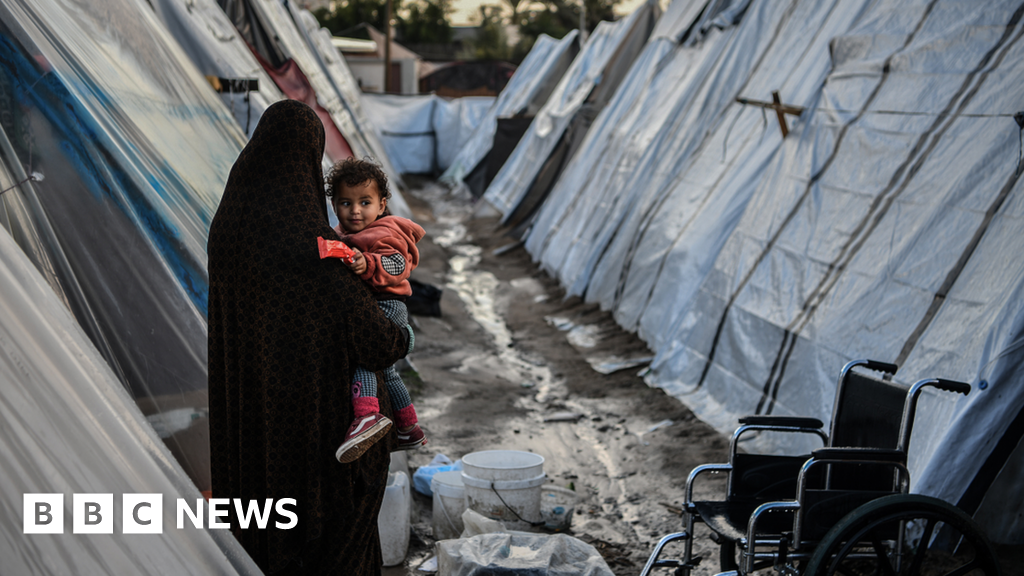Mediator Qatar said talks in recent days to reach a ceasefire agreement between Israel and Hamas in the Gaza Strip were “not very promising”.
Prime Minister Mohammed bin Abdulrahman Al Thani said he remained optimistic, but added: “Time is not in our favor.”
This comes after the Israeli prime minister said he would press ahead with plans for a ground invasion of Rafah despite mounting international pressure.
Hamas has accused Israel of not making progress in reaching a ceasefire agreement.
Top officials from the United States, Israel, Egypt and Qatar are meeting in Cairo to try to broker a temporary halt to the fighting.
“The pattern of the past few days. [is] In reality it is not very promising, but as we always repeat, we are always optimistic and we will always keep moving forward,” Sheikh Mohammed told the Munich Security Council World Leaders’ Meeting.
He added: “With this agreement, we believe we are talking on a larger scale, but we still see some difficulties in the humanitarian part of this negotiation.”
But he said a ceasefire should not depend on agreements to release hostages held by Hamas.
“This is the dilemma we find ourselves in, and unfortunately is being exploited by many countries, which is that a ceasefire is contingent on a hostage agreement,” he said.
Israeli Prime Minister Benjamin Netanyahu said he had sent negotiators at the request of US President Joe Biden, but added that he would not return to further talks because Hamas’ demands were “delusional”.
Israel launched a military offensive on October 7 after Hamas-led militants launched a surprise attack on its territory, killing at least 1,200 people and taking 253 hostages.
The Hamas-run Health Ministry said more than 28,800 people, mainly women and children, had been killed in the Israeli operation.
Speaking in Jerusalem on Saturday, Prime Minister Benjamin Netanyahu reiterated his goal of annihilating Hamas and said his army would fight until Israel achieved “complete victory.”
Opponents of military action in Gaza’s southernmost city of Rafah, where about 1.5 million people have fled, are effectively telling Gaza to “lose the war,” he said, even if a hostage deal is reached. He added that the military would participate in the war.
Early in the war, Israel had instructed Palestinians to evacuate to Rafah as Israeli forces moved toward northern cities.
Israeli authorities announced this week that they want civilians to move into what they call the “humanitarian zone,” a strip of mostly farmland on the Mediterranean coast known as al-Mawasi.
President Biden called on Israel not to launch an attack on Rafah without a plan to protect the safety of civilians.
Prime Minister Benjamin Netanyahu is also under pressure domestically to bring home the remaining hostages in Gaza.
Thousands of protesters gathered in Tel Aviv on Saturday to demand early elections, which are not scheduled until 2026. The Israeli prime minister has rejected similar demands from within his own ruling Likud party for elections immediately after the end of the Gaza conflict, saying: “That’s what we intend to do.” Split us up now. ”
Meanwhile, Hamas has accused Israel of a lack of progress in reaching a ceasefire agreement and has threatened to end its involvement unless relief supplies are delivered to northern Gaza. Aid agencies say they are increasingly concerned about food, water and medicine shortages in the region.

